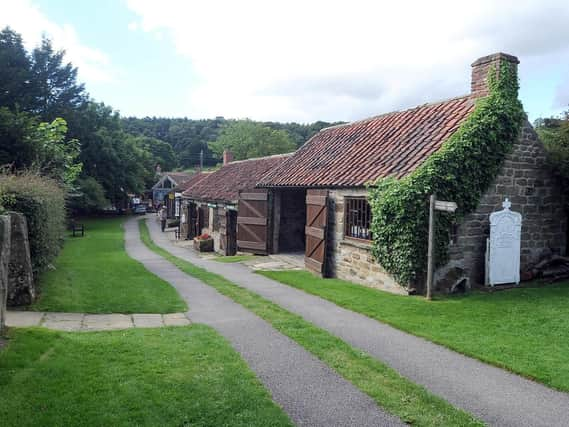'Pop-up' dialect testing at Yorkshire museums will trace lost rural slang


The 'pop-up' dialect tests at the Dales Countryside Museum in Hawes and the Ryedale Folk Museum in Hutton-le-Hole will compare the speech still in use in rural Yorkshire with words that were common in the countryside in the 1950s.
A major field study was conducted after World War Two by researchers who travelled around England to speak to people living in farming communities during a time when it was feared traditional dialects would die out as the population became more mobile and urbanised.
Advertisement
Hide AdAdvertisement
Hide AdThe subjects - who were mainly men aged over 65 - were asked for the words they used to describe everyday objects and their responses were collated.
A £500,000 grant from the National Lottery Heritage Fund has enabled the University of Leeds to update the research, which is stored in their Special Collections archives in a series of handwritten notebooks and reel-to-reel tape recordings.
They're hoping to speak to some of the descendants of the original interviewees by holding roadshows at several museums about country life.
The original questions display a clear bias that reflected gender roles at the time, with men asked about farming, nature and the weather, whereas 1950s women were told to speak about housekeeping and cooking.
Advertisement
Hide AdAdvertisement
Hide AdUniversity of Leeds English language lecturer Fiona Douglas said: "I'm not just going out looking for old men with good teeth who haven't moved anywhere. I want to be able to see how much dialect has changed.
"We will speak to people whose families haven't stayed in one area for generations, as well as those who can trace their roots back to the same place over hundreds of years. We want to include everyone's language.
"Dialect is a really good way of getting a window into the language of the past.
"If you, your parents, grandparents or other relatives have a connection to these historical dialect studies, the project would like to hear from you."
Advertisement
Hide AdAdvertisement
Hide AdThe pop-up dialect kit will tour the Dales Countryside Museum and Ryedale Folk Museum in North Yorkshire, Avoncroft Museum of Historic Buildings in Worcestershire, the Museum of
East Anglian Life in Suffolk, and the Weald and Downland Living Museum in West Sussex.What were the words in common usage in the countryside in the 1950s?
- Freckles - ferntickles, murfles, brannyspreckles, brunny-spots, vrackles or frantittles- Left-handed - cack-handed, cat-handed, coochy-pawed, gibble-fisted, left-kaggy, squippy- Packed lunch - A bait, jock, snap- Splinter - spelk, spell, shive, spill- Icicles - ice-bugs, ice-candles, ice-daggles, ice-shoggles, ickles, clinkers, icy-bells, conker-bells- Daddy long-legs - May maid, john long-legs, long-legged-tailor(s), jenny-splinters, lady-milord, spindleshanks, harvest men- Cobbler - shoe-mender, greither, nobby, shoey, snobbler, stubby- Porridge-stick - mundle, patter, pot-stick, thrivel, speltle, gull-thivel- A gossip - blatherskite, cagmag, cank, jaffock, yapper, chammer, gallivanter- Bogeyman - boggart, bogle, bobby, bugaboo, jenny wisp, Old Harry